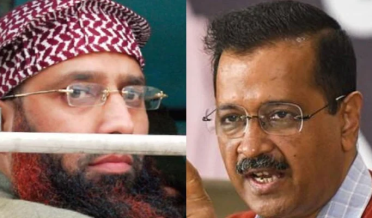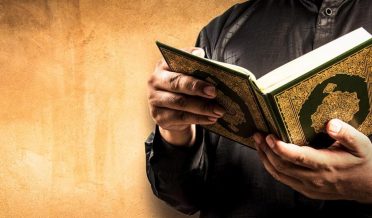Justice: fair and righteous dealing

Justice is a moral, ethical and laudable trait and attribute of human beings and the supreme virtue of human societies.
The judgement: reward and punishment ultimately belong to Allah Almighty. However, in the context of the social principle of Amr-o-Nahi i.e. dos and don’ts Allah (SWT) commands justice (4:110) and loves those who act justly (5:42) Allah (SWT) enjoins (orders) justice and kindness to give to (one’s) kinsfolk (16:90) and demands all people to show justice and mercy to all other people and to be standard-bearers to ensure injustice is removed.
Allah Almighty reminds us: “We sent Our Messengers with clear signs and sent down with them the Book and the Measure in order to establish justice among the people… (57:25).
The concept of Justice is much broader and all-encompassing according to Qur’an than just dealing with natural justice, legal justice or social justice with a socio-economic domain or humans’ self and internal ‘soul’ and other systems.
Establishing justice at various levels, in different circumstances and situations is the law of the Creator (SWT).
In Surah Ar-Rahman, Allah (SWT) describes how He (SWT) has created a balance of justice. We are not permitted to transgress against the system of balance at any level that Allah (SWT) has created. Allah (swt) says:
And the Heavens He has raised high, and He has set up the Balance (of justice). So that you may not transgress (due) balance. So establish weight with justice, and fall not short in the balance (7 – 9).
There is a consensus among scholars and commentators that the concept of Mizan (Balance) in this ayah implies JUSTICE. In this balanced Universe, the entire system has been established on Justice (the balance). Allah (SWT) has not created anything in this Universe without a purpose or a routine (55:5-10). Any transgression at individual, socio-economic, environmental and ecological or cosmos levels, or interference with any pre-determined set of systems, will disrupt the Mizan (the balance) – the just system that Allah (SWT) has created.
Allah (SWT) alone is in control of the working of the whole Universe and all that is in it and commands us that we should also adhere to justice in all the spheres in our jurisdiction as His (SWT) vicegerent, with free will. A slight imbalance of any kind and non-compliance of Amr-o-Nahi (commanded by Allah (SWT) and His (SWT) beloved Prophet (SAW) disrupts the balance, as sadly we observe literally on daily basis in socio-political-economic and many other walks of life.
Notwithstanding the injustice and disruptions caused to the ‘balance’ overall by the transgressors, referred to above, Allah (SWT) specifies FOUR all-encompassing categories amongst many many others and abhors injustices against them:
FIRSTLY: to maintain the Mizan (balance) we need a firm belief that there is only one Allah (SWT) worthy of worship, who has no partner and He (SWT) alone is the Creator, Sustainer of all the creations: all Powerful and all Almighty, all Competent and controls everything (18:45, 46:37, 36:820). Allah (SWT) says that:
And when Luqman said to his son (while advising him): “My son, do not associate others with Allah. Surely, associating partners with Allah (polytheism) in His Divinity is certainly (the) biggest injustice (31:13).
The word Zulm (injustice, wrongfully depriving someone of his legal and moral rights), is mentioned in the Qur’an denoting Injustice e.g. (6:82). The greatest injustice in the sight of Allah is shirk (associating partners) so we need to live our lives by the dictates of La Ilaha Illa Allah (There is no deity but Allah (SWT) – none has the right to be worshipped but Allah (SWT), along with all the implications of the Shahada.
The SECOND: Allah (SWT) reminds us of the injustice perpetrated by humans against themselves by transgressing to disrupt Allah’s (SWT) system of balance in all spheres. The most unjust person is the one who wrongs his own soul.
Allah (SWT) Says:
“Surely Allah does not do injustice to mankind in anything, but mankind does injustice to themselves ((10:44).
An unjust person is likely to possess adverse negative attributes with serious implications for the rest of the family and friends, communities, societies and the systems. For example, if the person is greedy and inconsiderate, it will cause him to usurp the wealth of others, be unjust to others by using all sorts of prohibited means and tactics. He will accumulate and hoard resources, depriving others. A power-oriented and authoritarian person will abuse his position to eliminate his opponents through violent means and abuse authority to eliminate and suppress others.
Greed is injustice towards the self and Qur’an confirms it:
Believers! Do not devour one another’s possessions wrongfully; rather than that, let there be trading by mutual consent. You shall not kill yourselves (4:29).
It is undoubtedly a rebellion against the nature of the Universe to act unjustly within the spheres in which one has the responsibility and fails to honors the rights of others. Therefore those in leadership positions and authority should be the embodiment of moral virtue to dispense justice.
Justice to self is a moral virtue and is the justice of character. Only a just person can be just to others to dispense social justice and behave within specified boundaries (Hadood).
The THIRD category relates to the injustice committed against humanity at large, including parents, kin folks, and the disadvantaged e.g. Orphans.
Verily, Allah orders justice and benevolence and giving to relatives and He forbids immorality and bad conduct and transgression. He admonishes you that perhaps you will be reminded (16:90).
Justice is a prerequisite to peace and harmony. It involves giving other people the right we give ourselves, and treating people the way we would like to be treated. Essentially Justice entails giving equal rights and treatment to others, distribution of rights and duties, and fair dealings in all aspects.
The FOURTH category relates to dealing with the rest of the Universe and Allah’s (SWT) creations justly. Allah (SWT) created the world and the Universe to demonstrate balance and justice.
You now see the mountains and consider them firmly fixed, but then they shall pass away even as clouds pass away. That will be the handiwork of Allah Who has created everything with perfect wisdom (27:88).
God made the heavens and the earth in truth so that each soul could be rewarded for what it had earned, and they will not be wronged (45:22).
Justice and balance have been created by God in all things and beings in the Universe, and so equilibrium in the world is an expression of divine justice (6:73, 29:75, and 30:6). Allah (SWT) has cited examples and it is the responsibility of human beings to ponder over and learn lessons and act accordingly.
Justice is a central theme in the Quran, and Al-Adl (the Just), Al Muqsit (The Equitable one) and Al-Hakam, which means, “The Judge” are amongst the 99 names of Allah (SWT) – the Most Just, and Who (SWT) judges the affairs of His (SWT) beings with full justice. Allah (SWT) is the embodiment of Justice. There are several ayahs in the Quran which describe the justice of Allah (SWT). For example:
Allah says: Verily, Allah loves those who act justly (5:42).
Allah does not wrong anyone as much as an atom’s weight (4:40) or as much as a groove on the pit of a date (4:124).
Surely Allah does not do injustice to the weight of an atom, and if it is a good deed He multiplies it and gives from Himself a great reward (4: 40).
And He gives you all that you ask for. But if you count the favours of Allah, never will you be able to number them. Verily, man is given up to injustice and ingratitude (Surah Ibrahim: 34).
Justice denotes all the positive attributes applicable in various settings involving human beings, environment, societies, social systems and all Allah’s (SWT) creations, e.g. fairness, integrity, evenhandedness, honesty, truthfulness, equality, equity, impartiality and objectivity amongst others.
Allah (SWT) commands:
Believers! Stand firm for Allah and bear true testimony. Do not let the hatred of a people lead you to injustice. Be just! That is closer to righteousness. And be mindful of Allah. Surely Allah is All-Aware of what you do (5:8).
O you who have believed, be persistently standing firm in justice, witnesses for Allah, even if it be against yourselves or parents and relatives. Whether one is rich or poor, Allah is more worthy of both…. (4:135).
………give measurement and weight with justice… (6:152).
(This being so, O Muhammad), call people to the same religion and be steadfast about it as you were commanded, and do not follow their desires, and say (to them): “I believe in the Book Allah has sent down. I have been commanded to establish justice among you. Allah is our Lord and your Lord (42:15).
In conducting Justice our beloved Prophet (SAW) made no distinction between believers and non-believers, friends and foes, high and low.
The justice to be bestowed regardless at individual, family, community and institutions levels: Allah (swt) says:
Believers! Be upholders of justice, and bearers of witness to the truth for the sake of Allah, even though it may either be against yourselves or your parents and kinsmen, or the rich or the poor: for Allah is more concerned with their well-being than you are. Do not, then, follow your desires lest you keep away from justice. If you twist or turn away from (the truth), know that Allah is well aware of all that you do (4:135).
Justice means:
•To be equitable in speech and actions.
•With no degree of discrimination or false testimony.
•It involves being fair about one’s family and those who are in our custody; justice between children by not giving one preference over the other.
•Being fair, just, considerate and forgiving.
•Be fair in judgement and speak against injustice (16:91).
•Speak up for the poor and needy and mobilise resources to eradicate poverty (17:26-27).
•Speak up for fair distribution: devise and advocate ways and means of fair circulation of resources (43:32).
•Punish those who hurt you in equal amounts. Punish as you were punished. But if you show patience it’ll be better for you. If you forgive then it is better (6:126, 22:60, 42:40-43)
• Rendering back the trusts to those, to whom they are due(4:58)
•When you judge between men, you judge with justice (4:58)
•O you, who believe, be upright for God, and (be) bearers of witness with justice! (5:8).
•And approach not the property of the orphan except in the fairest way, until he [or she] attains the age of full strength, and give measurement and weight with justice… (Quran 6:152).
•Allah (SWT) has commanded us to establish weight with justice and ordered us to refrain from falling short in keeping this balance (7-9).
The Qur’an repeatedly implies a direct ‘working’ relationship between Allah and Muhammad by the use of the conjunction “and” when speaking of the two together.
Allah (SWT) has set up the system of balance and justice and the Prophets’ (SAW) role was to implement the system as Qur’an points out:
The Prophet (SAW) of Allah Almighty says: “I believe in the Book Allah has sent down. I have been commanded to establish justice among you. Allah is our Lord and your Lord (42-15).
Then to reaffirm the working of Allah’s (SWT) justice, Allah Almighty reminds us about the day of the Judgement when He (SWT) shall set up just scales to weigh and measure the good and the bad deeds according to their merits.
Allah (SWT) says in the Quran:
We shall set up just scales on the Day of Resurrection so that none will be wronged in the least. (We shall bring forth the acts of everyone), even if it be the weight of a grain of mustard seed. We shall suffice as Reckoners
(21:47).
Allah (SWT) further explains the working of His Justice system: which He (SWT) expects us to observe too:
So, whoever does an atom’s weight of good shall see it;
and whoever does an atom’s weight of evil shall see it. (99: 7-8)
Indeed Allah wrongs none, not even as much as an atom’s weight. Whenever a man does good, He multiplies it two-fold and bestows out of His grace a mighty reward (4:40).







